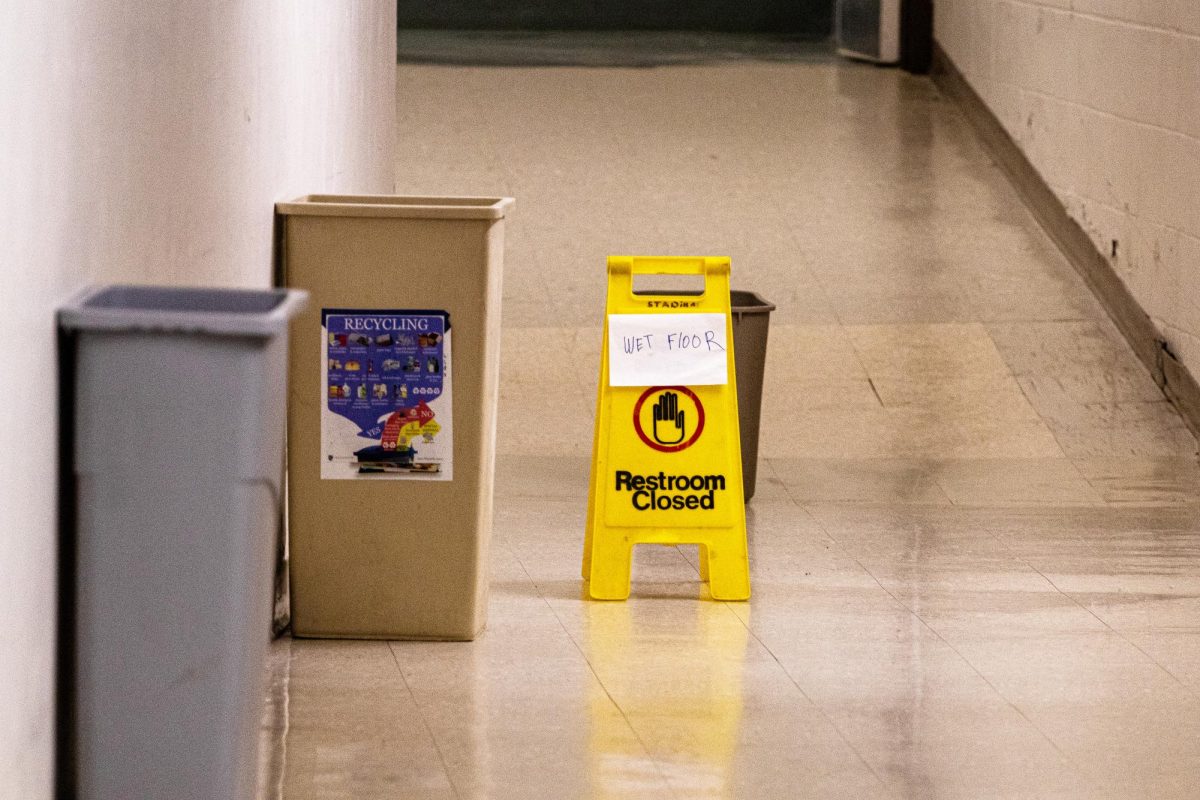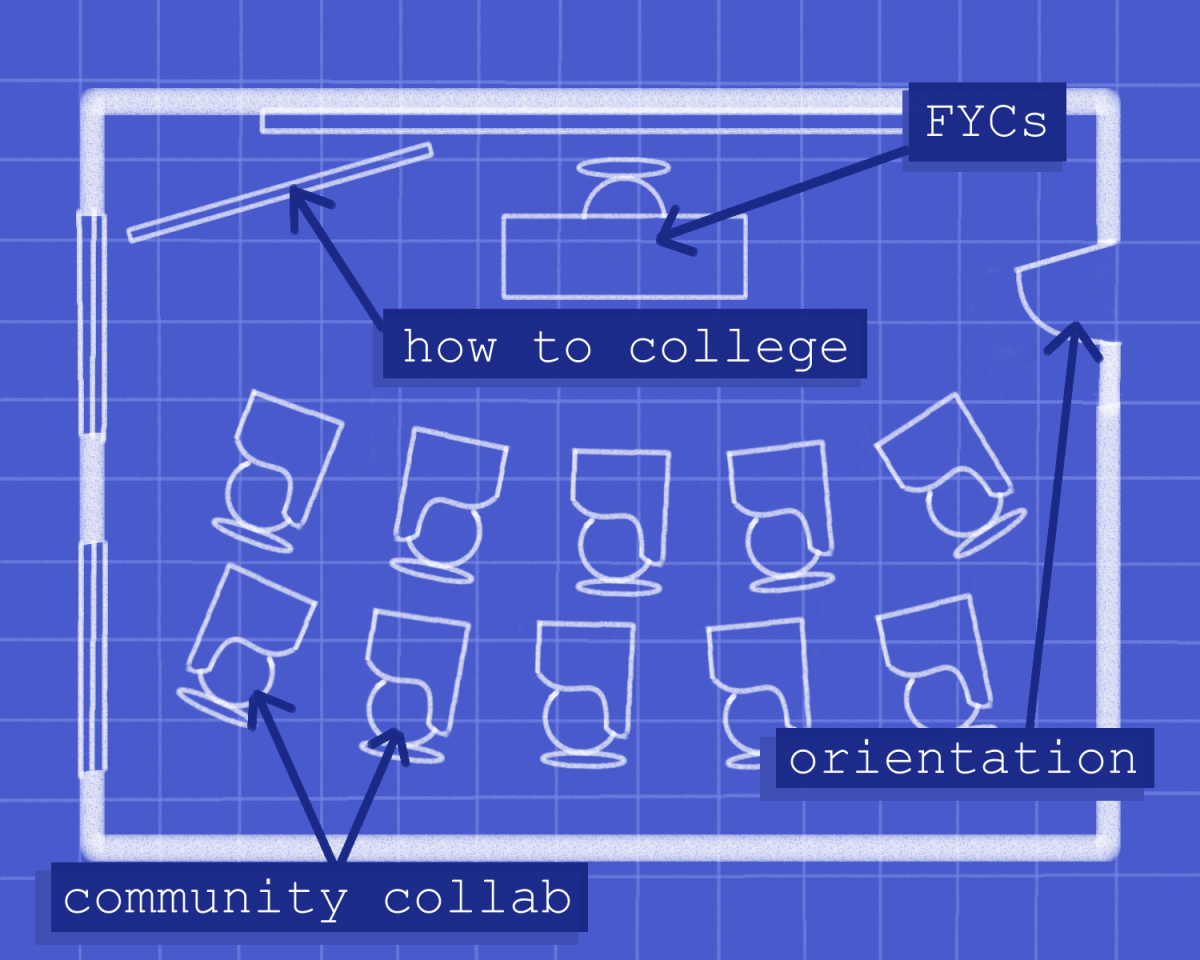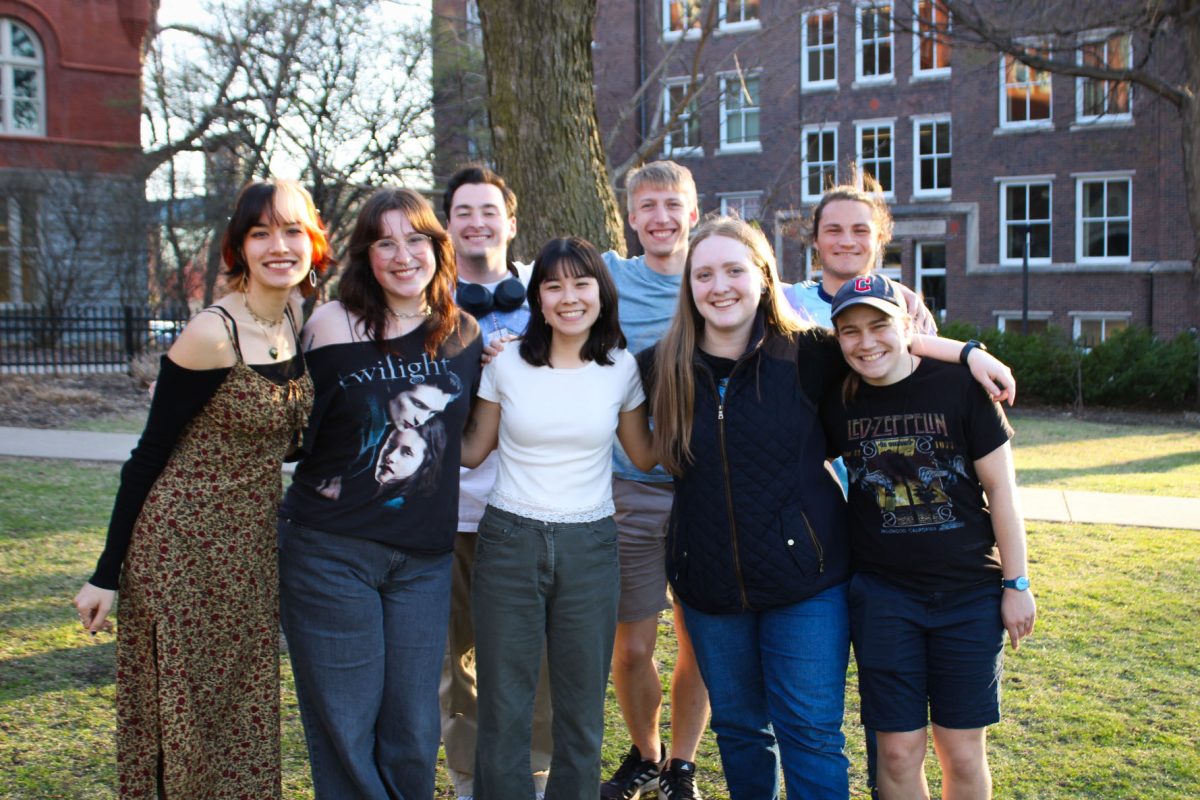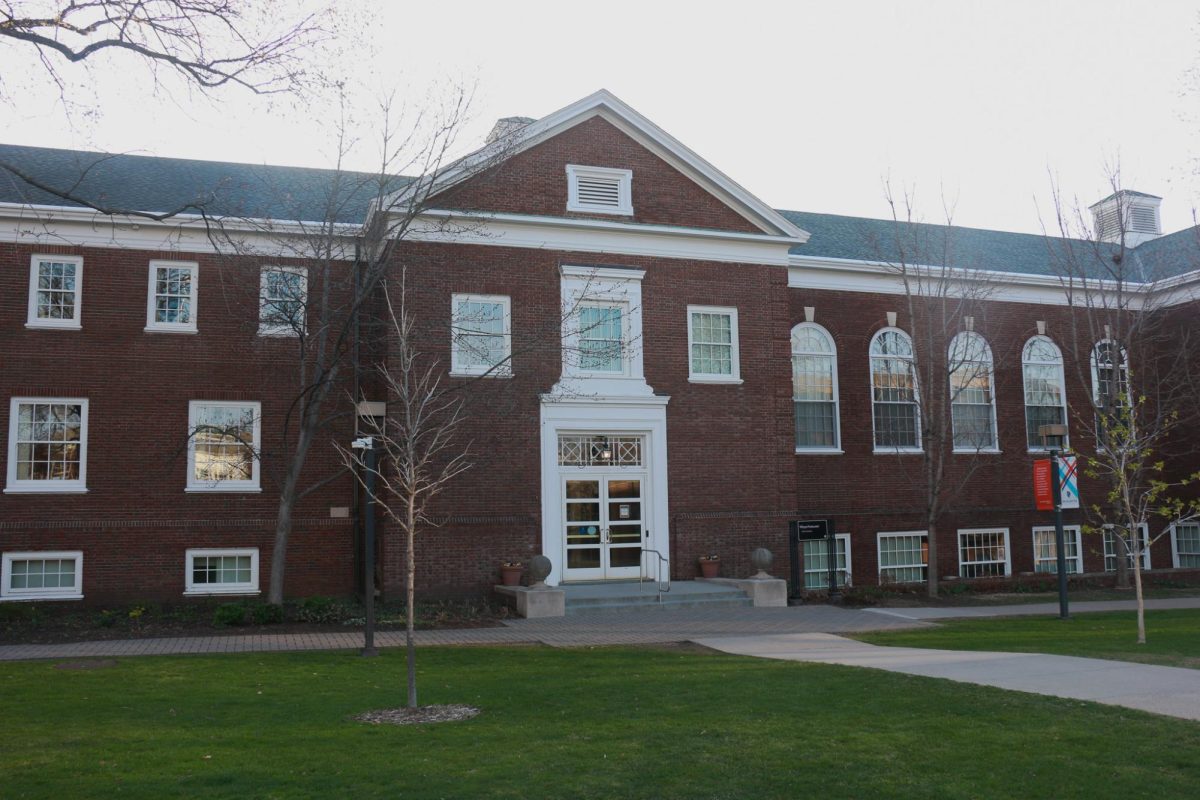At Macalester, we’re constantly introduced to new ways to create a safe, welcoming campus where everyone can have the best learning experience possible. Orientation Leaders teach first years about preferred gender pronouns (PGPs). The Department of Multicultural Life (DML) runs the More than Words (MTW) campaign to promote inclusive language. Professors (should) announce potentially triggering material. Administration implements these programs, to varying degrees of success, in an attempt to create a space of inclusivity and respect.
What no one has quite figured out is what to do when this welcoming space is disrupted. “Calling out” is one way students correct each other when a peer says or does something that is hurtful, disrespectful or offensive. This process (among other issues) is critiqued in recent articles like “The Coddling of the American Mind” in The Atlantic September issue and “Not a Very P.C. Thing to Say” in the January 26th issue of New York magazine. These articles question whether people can have difficult conversations if they’re shut down for making mistakes.
While calling out has its uses, there are some side effects. In an environment with a reputation for being liberal and forward-thinking, students may not feel comfortable voicing questions or doubts. An anonymous Macalester student said that students subscribe to a superficial political correctness inspired by a desire for social inclusion.
The student said, “If I’m afraid to be wrong, I’m not progressing. I’m stalling. I’m not helping anybody. I’m not promoting anybody’s welfare, I’m just thinking about me. I think a lot of people are doing the same thing, they’re just thinking about them[selves]. Nothing will change if people feel personally targeted. People need a space to be wrong.”
Demetrius Colvin, Assistant Director of the DML and a founder of the MTW campaign at Macalester, said in response to The Atlantic article, “I’m not going to say that there aren’t some people who are using social justice as a hammer. When I think about our society and the predominant paradigm in which we’re taught to communicate – it’s a debate culture. It’s a very ‘let me cut you off at the knees, let me drill my point into you, until you have no other choice but to agree with me.’”
Colvin believed our approach should be more nuanced. “I’m not going to use this as a hammer; I’m going to use it as an outstretched hand … I know that if someone doesn’t make the overture, we’re going to continue down the same cycles of … defense and ‘I don’t want to talk about it’ and both sides get to be right in their own little corners.”
Yet there’s a reluctance to modify the calling out process. Many consider it condescending and tone-policing to tell people how to respond when someone has done or said something offensive.
Giulia Girgenti ’18 believed calling out is still a valid means of getting the point across, but in a community like Macalester where many students know each other, she felt students could approach these conversations more thoughtfully. Girgenti commented, “People will say, you know, ‘This white guy in my Econ class doesn’t deserve my love and doesn’t deserve my compassion and care – and I’m hurt, and I’m angry,’ and whatever. That’s real! And I don’t want to invalidate that.”
She added, “Calling out doesn’t necessarily come from a place of anger, but it appears to come from a place of anger … Calling out happens a lot where there isn’t that base of trust, there isn’t that base of a relationship.”
Some have started reframing calling out as “calling in,” an attempt to discuss issues privately rather than publicly putting others on the spot for their words and actions.
Girgenti said, “[Calling in] is not an attack and it’s not an aggressive thing and ultimately [it] comes from a place of love … If I’m sitting someone down and being like, ‘There’s something that you did that upset me’. I care about that person enough to make myself vulnerable in that way and start that conversation.”
Calling in isn’t a perfect fix. Being challenged on something you did or said is always difficult, particularly when privilege and identity are involved. Macalester students come in with different levels of exposure to these issues and some may have never openly discussed them before arriving on campus. Students with minimal experience talking about privilege and identity issues may be deterred from learning more if they’re called out for their views or language. The anonymous student mentioned a friend who considered transferring due to treatment from other students. The student said, “And that’s not to say [their] actions weren’t wrong, or problematic, or any one of those things. But is that what we want? Is that the kind of community that we want to be?”
Colvin had a similar response. “Inclusive language is ‘I want you to respect me,’ ” he said, “I don’t want you to not to say this or not to say that because secretly in the back of your mind you’re thinking ‘I just need to move on, I don’t care, Macalester is only four years,’ or ‘I only have to be in class with this person for three months and I’ll keep my ideas.’ ”
The anonymous student said, “I want to know what’s right and how it’s changed and how I can be instrumental or how I can take a backseat. But I don’t always know that’s there’s a space to ask those questions without looking like an idiot, or an ‘–ist.’ ”
Colvin described how his own communication attitudes have evolved. He said, “When I was younger [I thought] I needed to change someone, or it had to be right then and there. But … how I understood social justice advocacy and inclusive language five years ago isn’t the way I understand it now… I want to continue to grow and learn. So I should give that same opportunity to other people, right? To me, an ideal situation of responding is ‘Hey, this is how it impacts me. I still want to be in a relationship with you, here’s more information.’ But especially, if you know you don’t have it in you empathetically or emotionally to deal with something, then I always say: self-care. Just remove yourself from the situation and be like ‘I’m sorry, I just have to step out.’”
A 2014 survey of approximately 600 students on the MTW campaign by the DML shows possible evolution in understanding of inclusive language.
Though the MTW committee did not analyze it, there was difference between student and staff/faculty responses. About twenty percent of student respondents reported that they did not understand the MTW campaign, compared to about seven percent of staff and faculty responding. The percentage of students who understood the MTW campaign rose from sixty percent to sixty-nine percent from first-years to juniors. Due to low representation, it’s difficult to draw conclusions about the senior class. The data was also influenced because not every respondent answered every question; there was a “somewhat understood” option; and people with strong feelings toward the campaign were more likely to complete the survey. However, the data may show that the more time spent at Macalester, the more students understood the MTW campaign and inclusive language.
After the survey, the MTW committee moved away from what Colvin called a static, “don’t-say-this-bad-word-campaign” and focused on how the campaign could continue to spark dialogue.
Christian Esposito, Chair of the Linguistics Department, said, “[Language] always reflects what the people need and what people are doing. So there’s this need to have something in English in addition to ‘his’ or ‘her’. Or this need to identify that some things, like ‘Man up!’ or … ‘That’s so gay,’ – things like that are hurtful. They’re hurtful to people and they’re offensive and we, if we as a community don’t want to use that language because we don’t want to hurt or offend people, then language has to change.”
According to Colvin, “Being socially conscious and advocating for social justice is a very physically, emotionally and mentally exhausting endeavor, but it is made much easier when you develop greater empathy for yourself and others to make mistakes … We have to move forward together … [and] be vulnerable about our impact on one another as community members.”
He added, “You have to have a long view of change [through social justice] and it’s not going to happen overnight, so [we need] the ability to give people grace as long as they’re trying.”
Calling out often lacks that grace-giving ability.
Esposito said, “Being mindful of how you speak … Don’t we do that all the time? … In class, I think about the way I say things because I have the relationship of professor-student … with their friends [students] might use a lot of slang, they might curse a lot – they don’t do that with me. But we’re still able to exchange our ideas and have the same conversation we need to have … I see [inclusive language] as part of just being thoughtful about the way we use language, which is, I think, what we do every time we speak.”
She added, “I struggle with wrapping my head around [the idea that] it’s okay to say those things that are on the [MTW campaign] poster. If you can’t express yourself without hurting another person, then maybe you need to think about what you’re saying a little bit more.”
Does that apply to calling people out?







Alan Wallace • Sep 11, 2019 at 1:06 am
Greetings! Very helpful advice within this post! It’s the little changes that produce the biggest changes. Thanks for sharing!
Ruth Piper • Sep 9, 2019 at 1:17 pm
Hello, everything is going sound here and ofcourse every one is sharing data, thatís in fact good, keep up writing.